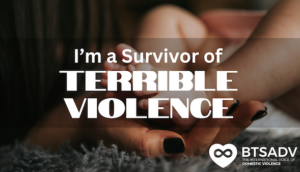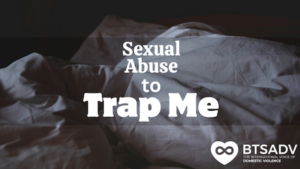By Jessica M. Corvo
“It’s wonderful to be loved, but it’s profound to be understood.” -Ellen Degeneres
Trauma can test our limits in every single capacity. It can make us or break us. It can make us better or bitter. Challenges can be visible or invisible. Trauma can affect our physical, mental, emotional and spiritual health.
An essential part of recovery is validating an experience. Indifferent to whether or not the experience makes sense, victims of trauma seek survivors to validate what they went through. “Me too” are the most bittersweet words to hear. My heart hurts to know another human being has experienced trauma while at the same time, it is comforting to know I am not alone.
Experience is the best teacher because it helps people connect on deeper levels.
What is trauma?
Trauma is an emotional response to an unforeseen event. The three main types of trauma are acute, chronic or complex. Acute trauma is a single incident such as an accident, rape or natural disaster. Chronic trauma is repeated or prolonged incidents such as domestic violence or abuse. Complex trauma is exposure to varied and multiple traumatic events, often of an invasive, interpersonal nature such as neglect, child abuse, community violence, sexual exploitation or family abuse.
Responses from trauma can vary. Immediate responses to trauma tend to include shock and denial. Longer-term reactions can include unpredictable emotions, flashbacks, strained relationships and even physical symptoms like headaches or nausea. Many studies have even linked CPTSD as a long term response to various forms of trauma.
What does it mean to be trauma-informed?
“An abnormal reaction to an abnormal situation is normal behavior.” – Victor Frankl
Although Frankl was referring to psychological makeup and behavior patterns of prisoners in concentration camps during World War II, this has become a common saying within the domestic violence recovery space. If anything, these words help victims make sense and address their trauma responses.
According to Psychology Today, “A woman’s experience of trauma impacts every area of functioning, including physical, mental, behavioral, and social.” Understanding trauma as an event and how it affects the victim’s world is what it means to be trauma-informed.
Holistically addressing all aspects of life is called Trauma-Informed Care (TIC). TIC strengths-based framework that is grounded in an understanding of and responsiveness to the impact of trauma that emphasizes physical, psychological and emotional safety for both providers and survivors and that creates opportunities for survivors to rebuild a sense of control.
How does being trauma-informed help survivors of domestic violence?
When seeking professional help, it’s very important for victims of domestic violence to acknowledge you were exposed to trauma. It’s also important to ensure the professionals are familiar with trauma and trauma recovery. Being trauma-informed can mean a subtle difference in receiving the help necessary versus being re-traumatized.
Over the course of 10 years, I sought help from four different therapists and am still active in group therapy. My initial conversations with therapists started like this:
- [Therapist 1] “My family is crazy. I feel crazy. I don’t know what I’m doing wrong. Can you please help?”
- [Therapist 2] “My father has anger issues. I’m doing the best I can to not upset him. Can you help me be a better daughter?”
- [Therapist 3] “My father tried to kill me. He lost his temper and pointed a loaded gun at me then threatened to take his own life. Please help?”
- [Therapist 4] “I’m a survivor of domestic violence. I accept my family is doing the best they can. I need help processing compound trauma so I can cultivate healthy relationships. I acknowledge I have numerous people-pleasing and codependency patterns that no longer serve my highest good. Most of my decisions have been to keep me safe and avoid explosive situations. I would like to learn that not all instances of saying ‘no’ results in explosive situations. Can you please help me create a healthy world?”
Again, ‘having a normal human response to an abnormal human experience is completely normal.’ Acknowledging trauma, trauma responses and finding trauma-informed care professionals can help victims of domestic violence shift from victim to survivor to thriver.
Why is being trauma-informed important?
Being trauma-informed encourages sustainable recovery and health.
For instance, if I sought professional help and told a therapist I was having troubles with anxious thoughts, depressive moments, big mood swings, suicidal thoughts and manic episodes where I’m perceived as being completely detached to reality (believing in rainbows, magic and often talking to animals), there is a good chance a therapist would prescribe a handful of meds or perhaps commit me for short term observation. Being trauma-informed also reduces the risk of re-traumatization. The same self-assessment, if I told the therapist I am a survivor of trauma or more specifically domestic violence, then I increase my chance for a sustainable recovery plan.
“More than 57 million people in the USA suffer from a mental illness. Over 50 percent of women who live with a mental illness have previously experienced some sort of trauma, ” continues FCADV, “Domestic violence can cause an adverse ripple effect on the emotional and psychological state of a survivor.”
Victims of trauma need (and deserve) support and understanding.
Trauma-informed society
Do you imagine a society that is trauma-informed? This means the adoption of principles and practices, as well as organizational culture, can promote a society of safety, empowerment, and healing. Everything starts with us. Being trauma-informed is a drop that creates a ripple effect. Victims can become survivors. Survivors can thrive and soon become the best advocates for the widespread adoption of trauma-informed care.
For more information, please check out the CDC‘s 6 guiding principles to trauma-informed care.
If you or someone you know is in an abusive relationship, there is help. You can visit the Break the Silence Against Domestic Violence website at www.breakthesilencedv.org or chat with one of our helpline advocates at 855-287-1777.
========
Share Your Story
Sharing our stories can be incredibly empowering while also helping others connect with survivors who have similar experiences. If you are inspired to share your story with us, submit here. You can choose to remain anonymous.
You can also donate to BTSADV here.









